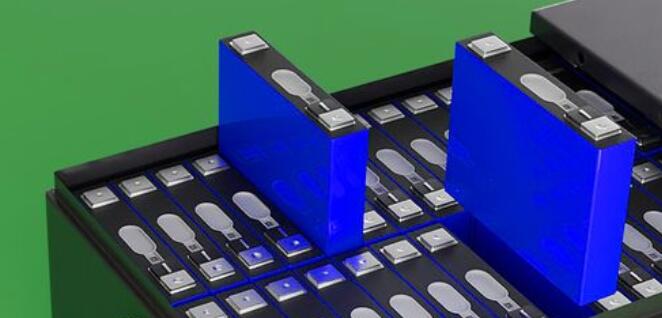Revolutionizing Energy Management: The Power of Smart Grids and Lithium Batteries
序章
The demand for energy is constantly increasing, and traditional energy management systems are struggling to keep up. However, with the advent of smart grids and the ever-improving technology of lithium batteries, a new era of energy management is dawning. This article explores the potential of these two innovations in revolutionizing energy management.
Smart Grids: The Backbone of Future Energy Management
Smart grids are advanced energy management systems that integrate various technologies, such as renewable energy sources, advanced metering infrastructure, and real-time data analytics. These grids enable efficient monitoring, control, and optimization of electricity generation, distribution, and consumption. By gathering and analyzing vast amounts of data, smart grids can detect patterns, identify inefficiencies, and make intelligent decisions to improve energy management.
One of the key advantages of smart grids is their ability to accommodate renewable energy sources, such as solar and wind power. Unlike traditional grids, smart grids can handle the intermittent nature of these sources by dynamically balancing supply and demand. They can automatically adjust the flow of electricity based on real-time conditions, ensuring optimal utilization of renewable energy without compromising reliability.
Moreover, smart grids enable demand response programs, allowing consumers to actively participate in energy management. Through real-time pricing information and automated control systems, consumers can adjust their energy consumption based on price signals, reducing their energy bills and contributing to the stability of the grid. This demand-side flexibility helps in the integration of intermittent renewable energy sources and reduces the need for additional fossil fuel-based power plants.
Lithium Batteries: Empowering Energy Storage
Energy storage is a crucial component of efficient energy management. It enables the storage of excess energy during periods of low demand and its utilization during peak demand or when renewable sources are unavailable. Lithium batteries have emerged as the preferred technology for energy storage due to their high energy density, long cycle life, and fast charging capability.
Lithium batteries can be deployed at various scales, ranging from residential to utility-scale applications. At the residential level, these batteries can store surplus solar energy generated during the day for use during the night, reducing reliance on the grid and lowering electricity bills. They can also act as backup power during electricity outages, providing uninterrupted power supply to critical appliances.
On a larger scale, lithium batteries integrated with smart grids can mitigate the challenges associated with the intermittent nature of renewable energy sources. They can store excess renewable energy during periods of high generation and discharge it during times of low generation, ensuring a stable power supply. This energy shifting capability helps in reducing the need for costly grid infrastructure upgrades and fossil fuel-based backup power plants.
Lithium batteries also play a vital role in smoothing out the fluctuations in energy demand. By discharging stored energy during peak demand periods, they can reduce strain on the grid and prevent blackouts or brownouts. This flexibility in energy supply and demand management contributes to a more reliable and resilient energy infrastructure.
Smart Grids and Lithium Batteries: A Synergistic Partnership
The true potential of revolutionizing energy management lies in the synergy between smart grids and lithium batteries. Smart grids provide the intelligence and control required for efficient energy management, while lithium batteries enable the storage and utilization of excess energy. When combined, these technologies create a dynamic and responsive energy ecosystem.
The integration of smart grids and lithium batteries can unlock numerous benefits. It can enable higher penetration of renewable energy sources, reduce greenhouse gas emissions, and enhance the reliability and resilience of the grid. Furthermore, it can empower consumers to actively participate in energy management, leading to increased energy efficiency and cost savings.
結論
In conclusion, smart grids and lithium batteries have the potential to revolutionize energy management. Smart grids enable efficient monitoring, control, and optimization of energy generation, distribution, and consumption. Lithium batteries, on the other hand, empower energy storage and provide flexibility in handling intermittent renewable energy sources. The synergy between these technologies can lead to a more sustainable, reliable, and consumer-centric energy future. Embracing these innovations is crucial for ensuring a smooth transition towards a cleaner and smarter energy system.
-
 Low-speed electric vehicles (LSEVs) are compact electric vehicles designed for short-distance travel at relatively low speeds. They are typically used in urban environments, industrial areas, and campuses for transportation purposes. LSEVs are known for their small size, low cost, and eco-friendly operation. Lithium batteries are commonly used in low-speed electric vehicles due to their high energy density, lightweight nature, and...続きを読む
Low-speed electric vehicles (LSEVs) are compact electric vehicles designed for short-distance travel at relatively low speeds. They are typically used in urban environments, industrial areas, and campuses for transportation purposes. LSEVs are known for their small size, low cost, and eco-friendly operation. Lithium batteries are commonly used in low-speed electric vehicles due to their high energy density, lightweight nature, and...続きを読む -
 The demand for reliable and sustainable power solutions has increased significantly in recent years. With the growth of renewable energy sources such as solar and wind power, there is a need for efficient and long-lasting batteries that can store and supply energy. The 12V 200Ah LiFePO4 lithium battery is one such solution that provides reliable and sustainable power for a...続きを読む
The demand for reliable and sustainable power solutions has increased significantly in recent years. With the growth of renewable energy sources such as solar and wind power, there is a need for efficient and long-lasting batteries that can store and supply energy. The 12V 200Ah LiFePO4 lithium battery is one such solution that provides reliable and sustainable power for a...続きを読む -
 Off-roading has always been an exhilarating and adventurous activity for outdoor enthusiasts. Whether it is conquering rough terrains, crossing muddy trails, or navigating through challenging landscapes, the thrill of off-roading is unmatched. However, the traditional off-roading vehicles often come with a significant drawback - the limited range and power supply. This limitation is now being overcome with the revolutionary UTV...続きを読む
Off-roading has always been an exhilarating and adventurous activity for outdoor enthusiasts. Whether it is conquering rough terrains, crossing muddy trails, or navigating through challenging landscapes, the thrill of off-roading is unmatched. However, the traditional off-roading vehicles often come with a significant drawback - the limited range and power supply. This limitation is now being overcome with the revolutionary UTV...続きを読む -
 Introduction The world is facing a dire need to transition from fossil fuel-powered vehicles to sustainable alternatives. Electric vehicles (EVs) have emerged as a viable solution to combat environmental degradation and reduce greenhouse gas emissions. The key component driving the success of EVs is the lithium-ion battery, which provides a sustainable future for transportation. Lithium Batteries: The Backbone...続きを読む
Introduction The world is facing a dire need to transition from fossil fuel-powered vehicles to sustainable alternatives. Electric vehicles (EVs) have emerged as a viable solution to combat environmental degradation and reduce greenhouse gas emissions. The key component driving the success of EVs is the lithium-ion battery, which provides a sustainable future for transportation. Lithium Batteries: The Backbone...続きを読む -
 In the automotive field, the battery is one of the core components and its performance and quality are directly related to the starting, operation and overall performance of the vehicle. Today, let's take a closer look at the 12.8V 60Ah car battery and see what features and advantages it has. 1. Voltage and Capacity First, the voltage of the 12.8V...続きを読む
In the automotive field, the battery is one of the core components and its performance and quality are directly related to the starting, operation and overall performance of the vehicle. Today, let's take a closer look at the 12.8V 60Ah car battery and see what features and advantages it has. 1. Voltage and Capacity First, the voltage of the 12.8V...続きを読む -
 As the world moves towards green and sustainable solutions, the motorcycle industry too is on the brink of a revolution. One of the mainstream dynamics it is altering pertains to two-wheel vehicle batteries. Increasingly, electric bike operations have been prioritized based on sustainability and reducing emissions-posing quite a challenge to bicycle manufacturers standing up with cutting-edge efficient solutions, and yet...続きを読む
As the world moves towards green and sustainable solutions, the motorcycle industry too is on the brink of a revolution. One of the mainstream dynamics it is altering pertains to two-wheel vehicle batteries. Increasingly, electric bike operations have been prioritized based on sustainability and reducing emissions-posing quite a challenge to bicycle manufacturers standing up with cutting-edge efficient solutions, and yet...続きを読む -
 As technology continues to advance, our reliance on portable devices grows. Keeping these devices charged and ready to use has become an important part of daily life. This is where the 12V LiFePO4 battery comes in handy. This type of battery is designed to provide safe and efficient power to your devices. LiFePO4 batteries are known for their safety...続きを読む
As technology continues to advance, our reliance on portable devices grows. Keeping these devices charged and ready to use has become an important part of daily life. This is where the 12V LiFePO4 battery comes in handy. This type of battery is designed to provide safe and efficient power to your devices. LiFePO4 batteries are known for their safety...続きを読む


